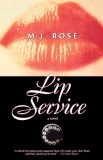Summary | Excerpt | Reviews | Readalikes | Genres & Themes | Author Bio

Paul and Bob Wilcox walked ahead of me, up toward the elaborate gingerbread conservatory where the party was under way. Around us were miles of late summer gardens that looked so much more inviting than the crowds. How much would anyone miss me if I disappeared and went off exploring the tended paths I knew so well?
"Julia?" Paul's voice implored me as if I were a recalcitrant child. He'd stopped about twenty feet ahead and was waiting for me, his fingers drumming against his thigh -- the only outward manifestation of his impatience.
"It's just so lush at this time of year," I offered as a way of explanation. "It's almost a shame to go inside."
"She's right," Bob said in his Southwest drawl, "Let's all play hooky -- have ourselves a picnic in the woods." Well over six feet tall, he looked down and out past the party at the gardens darkened but not yet diminished by the twilight.
"Oh no, I'm not going to lose both of you to the wilds of the Botanical Garden. Union, Julia, don't tempt the guest of honor." My husband sounded perfectly affable but his fingers were still drumming.
A renowned psychiatrist, Paul had closed his practice four years earlier to become the director of FIT (an acronym for a nonprofit agency called Fathers in Trouble). Now, he navigated the politics of the New York City government as well as the upper echelons of society in his never-ending quest for operating funds. Convincing, seducing, impressing, he catapulted his agency (and himself) into the limelight. FIT had become the charity of the moment.
I rejoined the two men and together we walked up the steps toward the glass building. As usual, I was aware of how much attention Paul attracted. Certainly, a fair share of guests acknowledged Bob, but they stared at Paul, their eyes lingering. There's something hypnotic about my husband's looks; he has the charismatic gleam of either a politician or an actor.
And in a way, he's both.
The first time I saw Paul Sterling -- at a party my father was giving in our home for some of his associates in the psychiatric community -- I was leaning against a wall sipping a glass of something ice-cold, not knowing what to do with myself. The only thing I had in common with any of these people was that I was in therapy and they were all therapists. Hearing some laughter, I searched for its source and saw Paul at the center of a group. He stood out. His hair was blacker than anyone else's, his eyes bluer. It was as if there were a spotlight on him. As I thought about edging closer to discover what it was about him that could hold those people so enthralled, he looked up, caught my eye, and grinned.
"You look lost," he said, when he finally managed to get through the crowd and over to me. "Can I help you find the bar, some food, a bathroom?"
"No," I laughed, already half in love with his easy confidence. "I live here." But that wasn't what I wanted to say. I wanted to tell him that I really was lost and ask him how he'd known it. I never would have guessed he was lost too.
We had just exchanged names and only begun to talk when someone walked over, interrupting, wanting to speak to Paul. And then someone else. Until, soon, he was in the center of another crowd and I just slipped away.
"You got lost again," he said, when he found me a few minutes later. His hand was determined as it surrounded mine and pulled me over to the piano. "Sit next to me, Julia. There's only room for the two of us here," he said. He began to improvise a jazz riff. I was alone beside him only a moment before a new crowd gathered. Paul always drew an audience. It wasn't his mastery of the piano. It was his assuredness, his attractiveness, his ease.
I slid as close to him as I could without our bodies touching. He must have sensed my shifting, because he turned to me -- his fingers poised above the ivory and black keys -- and looked at me, searching my face to see if I was all right, if I was enjoying this as much as he was. And then he smiled -- that intimate, engaging smile. Around us, people were watching, noting our silent exchange, but I didn't care, and when his fingers came down again, the sounds of his music went through me, conducted up my spine at the same time the others only heard it.
Copyright © 1998 by M.J. Rose
Your guide toexceptional books
BookBrowse seeks out and recommends the best in contemporary fiction and nonfiction—books that not only engage and entertain but also deepen our understanding of ourselves and the world around us.